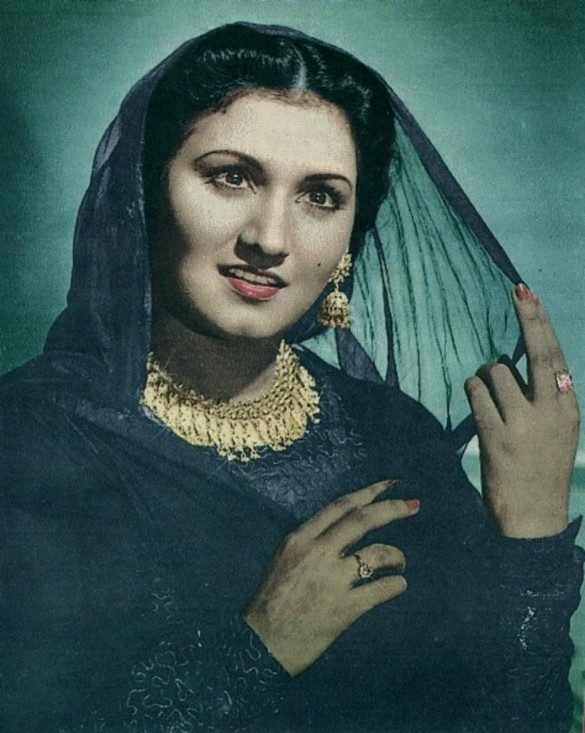
Noor Jehan, also known as Malika-e-Tarannum (Queen of Melody), was a ground-breaking artist whose legacy extends over seven extraordinary decades. She was one of the most talented and well-known singers in South Asia during her era. The entertainment industry will never be the same thanks to Noor Jehan's captivating voice and unmatched acting and singing abilities. The extensive career of Noor Jehan is examined in this article, which also honors her outstanding contributions to both music and film.
Noor Jehan, who was born on September 21, 1926, in Kasur, British India (now in Pakistan), immediately displayed a remarkable talent for singing. She made her acting debut as a child actor in the 1935 Punjabi film "Pind Di Kuri" at the tender age of six. Film producers and music composers were soon drawn to her by her enchanting voice and captivating performances.
In 1942, Noor Jehan got her big break as a playback singer when she contributed her voice to the movie "Khandan." She quickly rose to fame after the song "Shala Jawaniyan Mane" became a smash. From that point on, Noor Jehan didn't look back, rising to the top of the Indian film industry as the leading playback singer.
Across the subcontinent, audiences were moved by Noor Jehan's soulful voice and emotional depth. Malika-e-Tarannum was the moniker bestowed upon her in recognition of how well she performed ghazals, folk songs, and movie songs. Whether it was Urdu, Punjabi, Hindi, or Bengali, she could switch between genres and languages with ease, making her a truly multifaceted artist.
Numerous timeless songs from Noor Jehan's discography are still cherished by music fans today. Some of her timeless masterpieces include "Awaaz De Kahan Hai," "Chandni Raatein," "Jawaan Hai Mohabbat," and "Jhoom Jhoom Ke Nacho Aaj." She further cemented her reputation as a legendary actress with her strong turns in movies like "Anmol Ghadi" (1946), "Mirza Ghalib" (1954), and "Koel" (1959).
Noor Jehan was instrumental in bridging cultural divides between India and Pakistan after the partition in 1947, in addition to her contributions to music and film. She remained highly regarded in both nations, and her music is still a representation of our common cultural heritage. In addition to her artistic accomplishments, Noor Jehan was active in philanthropic pursuits and supported numerous charitable causes.
Her timeless melodies, which continue to motivate countless artists, are how Noor Jehan's legacy is preserved. She had an unrivaled influence on South Asian film and music. Numerous awards, such as Pakistan's President's Pride of Performance Award and the prestigious Nigar Award, were given to her for her artistic abilities.
The legendary singer and actress from British India, Noor Jehan, will always be known as the Queen of Melody. Millions of people have been permanently changed by her extraordinary talent, captivating voice, and exceptional contributions to music and film. Through the enduring melodies she gave the world, her legacy lives on. Noor Jehan had a lasting impact on the South Asian cultural heritage, as evidenced by her artistic talent and her honorific title, Malika-e-Tarannum.
Kanye West to make a comeback in Twitter after ill suited post last year
Eternal Embrace of Sisterhood: Celebrating the Unbreakable Bond on Sister's Day
"Men's Skincare: Breaking Stereotypes and Embracing Self-Care"